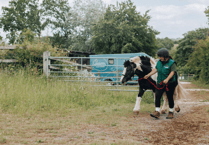The Government-subsidised bat-killing machines may be to blame. I refer, of course, to wind turbines.
An Exeter University survey of 29 wind farms found that 194 bats a month are killed
by the turbines, and this is probably an under-assessment. Extrapolating that finding to all 6,954 of our onshore wind farms would indicate 80,000 bats are killed every year. The survey was published in November 2016.
In the UK, all species of bats are protected by law. If you or I were to harm just one, we could face a prison sentence of up to six months.
Many companies and house owners go to great lengths to preserve bats. For example, Wolf Minerals’ reopening of the tungsten mine in Hemerdon was delayed because roosts of many different species of bat were found in the old buildings. Three separate European protected species licences were applied for and granted before those roosts could be disturbed and new roosts created to replace the lost habitats. That is how strict laws are on bat preservation.
So when the Exeter University survey was published, where were the howls of protest from those who profess to love nature upon reading the wholesale destruction by wind turbines of creatures that have lived on Earth for 30 million years?
What recommendations were made in the report? The scientists suggested that windfarm operators switch off or slow turbines on summer nights, when the bats are most at risk.
The contribution of wind turbines to our energy requirement is negligible. On October 31, 2016, the total amount of power fed into the national grid by wind turbines was just 0.6 per cent of the electricity we were using. On January 22, 2017, it was 0.73 per cent.
Not only is the contribution of the wind turbines negligible, but when the blades do not turn they are actually fed electricity from the National Grid to keep them warm.
Brexit gives us the perfect opportunity to review our energy policy and to prioritise lower prices and more secure supplies. The sooner the green energy policy is reviewed the better. It certainly cannot come soon enough for the bat population.
Ceri Jayes
Lower Warren Road, Kingsbridge




Comments
This article has no comments yet. Be the first to leave a comment.